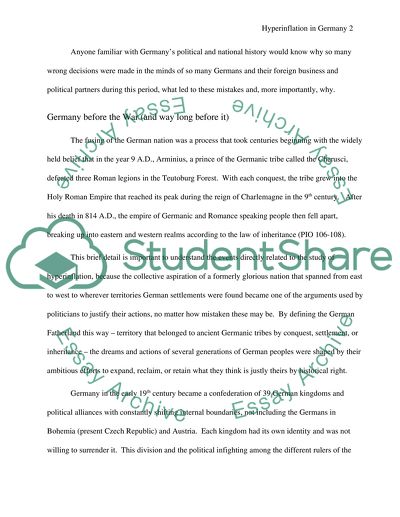Hyperinflation in Germany after World War I Essay. Retrieved from https://studentshare.org/miscellaneous/1515791-hyperinflation-in-germany-after-world-war-i
Hyperinflation in Germany After World War I Essay. https://studentshare.org/miscellaneous/1515791-hyperinflation-in-germany-after-world-war-i.


